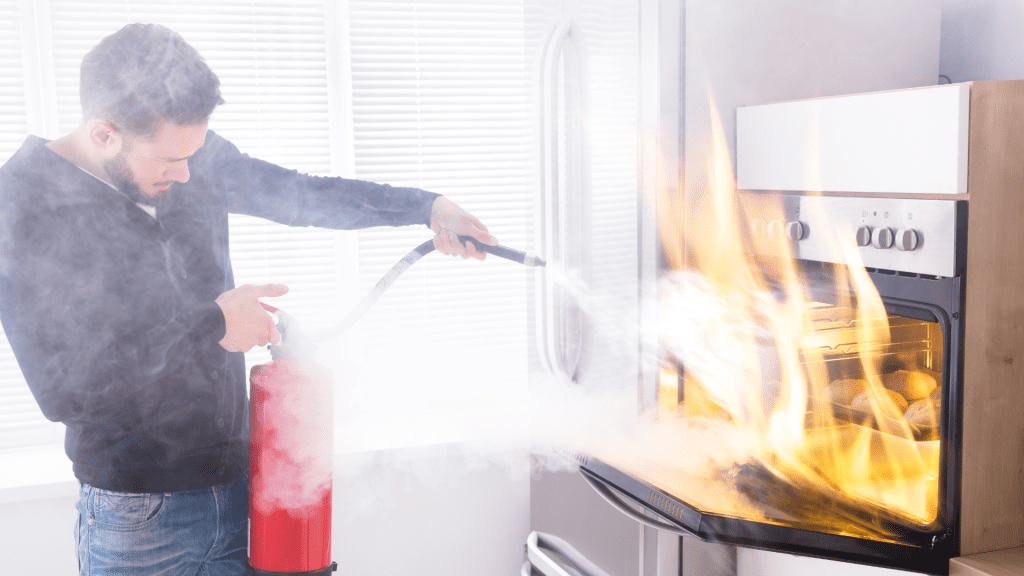October 5–11 is Fire Prevention Week. This is a reminder to take simple but life-saving steps to protect your home. Every year, U.S. fire departments respond to more than 350,000 home structure fires, causing thousands of deaths and billions in property loss, according to the NFPA. The good news is that many of these tragedies are preventable with preparation and awareness.
👉 Did you know?
- Working smoke alarms cut the risk of dying in a home fire by nearly 50 percent.
- Once a fire starts, you may have as little as two minutes to escape.
- Cooking is the number one cause of home fires, followed by heating equipment and electrical issues.
Smoke Alarm Safety
- Install at least one alarm on every level of your home and near each sleeping area.
- Mount alarms on the ceiling at least 4 inches from the wall. In homes with pitched ceilings, install alarms at the highest point.
- Avoid placing alarms near windows, doors, or ducts where drafts could affect operation.
- Hardwired alarms should be interconnected so that all alarms sound if one detects smoke.
- Do not paint or decorate alarms since this can block the sensors.
- Test alarms every month.
- Replace batteries once a year.
- Replace alarms every 10 years.
Electrical Fire Prevention
- Do not overload circuits. If lights flicker or dim when appliances are on, the load is too high.
- If fuses blow or breakers trip often, reduce appliances on that circuit or call an electrician.
- Replace blown fuses with the correct size. Using pennies or oversized fuses is extremely dangerous.
- Avoid using multiprong adapters or overloaded extension cords. Extension cords should be temporary and in good condition.
- Never run cords under rugs or attach them with nails or staples.
- Do not plug space heaters into extension cords.
- Use only outdoor-rated cords and appliances for outside use.
- Install ground-fault circuit interrupters (GFCIs) in kitchens, bathrooms, laundry rooms, and outdoor outlets. Test them regularly.
- Do not fold or roll electric blankets while they are plugged in. Turn them off after 30 minutes to prevent overheating.
Emergency Preparedness
- Keep a fire extinguisher in your home and make sure everyone knows how to use it. Escaping quickly should always be the first priority.
- Keep a cellphone handy in case of emergencies so you can call 911 after leaving the house.
- Store important documents in a fireproof box or a safe-deposit box. Do not try to retrieve them during a fire.
Fire Safety Checklist
Take 10 minutes this week to go over this checklist with your family.
✅ Test all smoke alarms and replace batteries if needed
✅ Confirm alarms are less than 10 years old
✅ Identify two exits from every room in your home
✅ Practice a 2-minute escape drill with your family
✅ Check outlets, cords, and extension cords for damage
✅ Unplug appliances when they are not in use
✅ Keep space heaters at least 3 feet from flammable materials
✅ Blow out candles before leaving any room
✅ Locate and review how to use a fire extinguisher
✅ Store important documents in a fireproof container or safe
Final Word
Fire Prevention Week is a reminder to protect the people and things that matter most. Take time to check alarms, review your escape plan, and walk through your fire safety checklist. A few minutes of preparation today could save lives tomorrow.










